Markets
markets Institutions that bring buyers and sellers together so they can interact and transact with each other.
A market is an institution that enables buyers and sellers to interact and transact with one another. A lemonade stand is a market because it allows people to exchange money for a product, in this case lemonade. Ticket scalping, which remains illegal or highly restricted in some states, similarly represents market activity since it leads to the exchange of money for tickets, whether it takes place in person outside the stadium or online.
The World of Markets
Markets form the foundation of all economic transactions. As various factors affect the supply and demand for goods and services, prices adjust upward or downward correspondingly to reach equilibrium.
The legalization of casinos in many states has resulted in dramatic growth in the industry. Top gaming revenues by state in 2011:
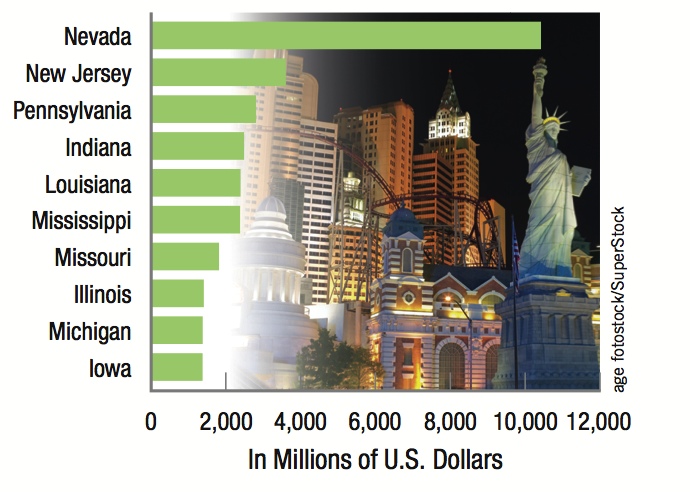

Prices for precious metals vary widely due to their relative demand and supply.
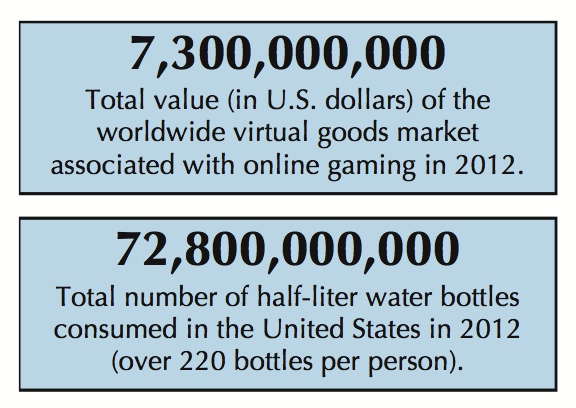
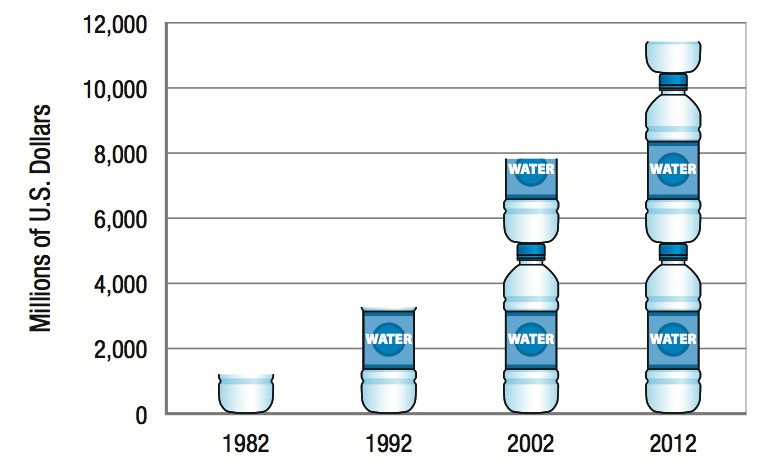
Total sales of bottled water in the United States took off in the 1990s and continued to grow steadily since.
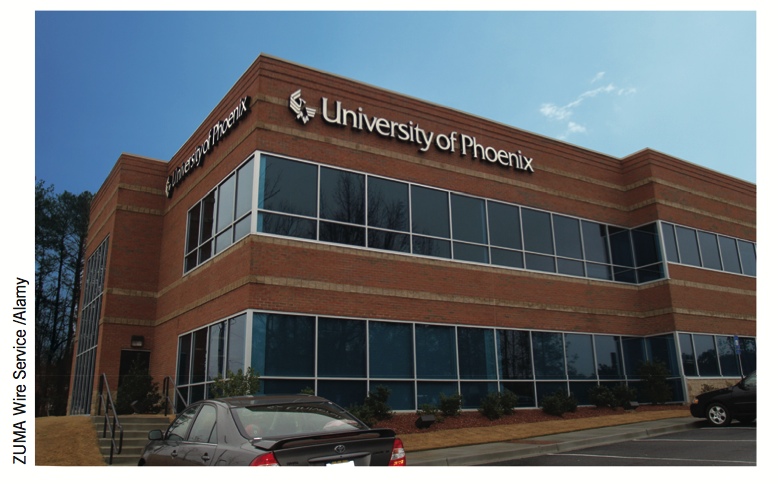
University of Phoenix is the largest for-profit university with nearly 500,000 students.
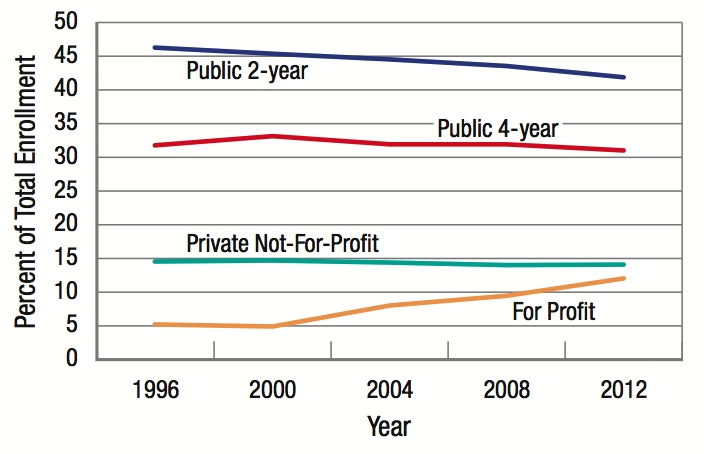
Enrollment at for-profit universities grew significantly over the past 16 years compared to not-for-profit institutions.
The Internet, without a physical location, has dramatically expanded the notion of markets. Online market sites such as eBay permit firms and individuals to sell a large number of low-volume products, ranging from rare collectible items to an extra box of unused diapers, and still make money. This includes students who resell their textbooks on Amazon.com and Half.com. The Internet also has launched markets for virtual goods. For example, buying virtual tools, cash, and animals in online games has become an important part of social media sites.
Even though all markets have the same basic component—the transaction—they can differ in a number of ways. Some markets are quite limited because of their geographical location, or because they offer only a few different products for sale. The New York Stock Exchange serves as a market for just a single type of financial instrument, stocks, but it facilitates exchanges worth billions of dollars daily. Compare this to the neighborhood flea market, which is much smaller and may operate only on weekends, but offers everything from food and crafts to T-shirts and electronics. Cement manufacturers are typically restricted to local markets due to high transportation costs, whereas Internet firms can easily do business with customers around the world.
Do Markets Exist for Everyone, Including Dogs and Cats?
Over 78 million dogs and 86 million cats call the United States home, with many times more finding homes around the world. Over four in ten U.S. households include at least one pet, which is often treated as a beloved member of the family. The expenses associated with pet ownership often extend beyond the basic necessities of food and vet checkups.

Total spending on petrelated products in the United States has increased every year since 2001, surpassing $50 billion in 2011. Even during the depths of the last economic downturn, spending on pets continued to increase. The seeming immunity of the pet goods market to economic hardships raises an interesting question of who the market is geared toward: the pets or their sometimes fanatical owners?
Pet goods manufacturers have increased the types of “consumer” goods and services for pets. These include a greater selection of pet foods and toys, but increasingly sellers are being more creative in their offerings. For example, the number of pet spas, pet hotels, and even pet airlines, allowing pets to bathe in luxury as they or their owners travel, has boomed over the past decade.
Pet consumerism has even gone high-tech. Since the introduction of tablets, programmers have introduced new tablet apps designed for cats, including games that are played feline versus human. Such apps highlight the ability of businesses to turn pets into consumers, whose desires (even if imagined by their owners) turn into actual purchases.
The power of consumer decisions extending beyond the wants of humans demonstrates the broad reach of markets. Because humans share a deep connection with their furry loved ones, they will often incorporate their pets’ desires into real consumption choices. And based on the growth of this market, it’s likely that dogs and cats will continue to be avid consumers in this market.
The Price System
price system A name given to the market economy because prices provide considerable information to both buyers and sellers.
When buyers and sellers exchange money for goods and services, accepting some offers and rejecting others, they are also doing something else: They are communicating their individual desires. Much of this communication is accomplished through the prices of items. If buyers value a particular item sufficiently, they will quickly pay its asking price. If they do not buy it, they are indicating they do not believe the item to be worth its asking price.
Prices also give buyers an easy means of comparing goods that can substitute for each other. If the price of margarine falls to half the price of butter, this will suggest to many consumers that margarine is a better deal. Similarly, sellers can determine what goods to sell by comparing their prices. When prices rise for tennis rackets, this tells sporting goods store operators that the public wants more tennis rackets, leading the store operators to order more. Prices, therefore, contain a huge amount of useful information for both consumers and sellers. For this reason, economists often call our market economy the price system.
MARKETS
- Markets are institutions that enable buyers and sellers to interact and transact business.
- Markets differ in geographical location, products offered, and size.
- Prices contain a wealth of information for both buyers and sellers.
- Through their purchases, consumers signal their willingness to exchange money for particular products at particular prices. These signals help businesses decide what to produce, and how much of it to produce.
- The market economy is also called the price system.
QUESTION: What are the important differences between the markets for financial securities such as the New York Stock Exchange and your local farmer’s market?
The market for financial securities is a huge, well-organized, and regulated market compared to local farmer’s markets. Trillions of dollars change hands each week in the financial markets, and products are standardized.